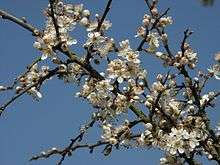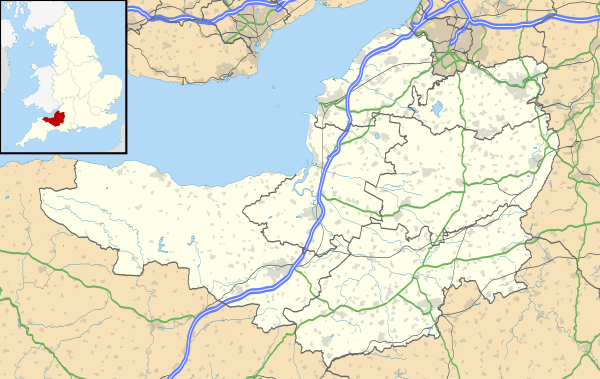Black Down and Sampford Commons
Black Down and Sampford Commons[1] (grid reference ST118161) is a 155.2-hectare (384-acre) biological Site of Special Scientific Interest in Devon and Somerset, notified in 1952.[2]

| Site of Special Scientific Interest | |
 Location within Somerset | |
| Area of Search | Somerset and Devon |
|---|---|
| Grid reference | ST118161 |
| Coordinates | 50.93757°N 3.25663°W |
| Interest | Biological |
| Area | 155.2 hectares (1.552 km2; 0.599 sq mi) |
| Notification | 1952 |
| Natural England website | |
The Little Breach reserve, which forms part of the SSSI is an area of heathy grassland on Greensand, with some blackthorn and birch, noted for its butterflies and moths.[3]
Blackdown and Sampford Commons have the finest and most extensive surviving examples of the heathland, carr woodland and marshy grassland habitats that have developed on the acidic soils overlying the Greensand and Keuper Marls of the Blackdown Hills. The heathland supports a typical invertebrate fauna, including a wide variety of butterfly species, and with spiders notably abundant. The site is regionally important for birds which favour heathland habitats.[2]
References
- Black Down Common is so spelt by the Ordnance Survey, but the SSSI citation spells it Blackdown Common.
- "Blackdown and Sampford Commons" (PDF). English Nature. Retrieved 12 August 2006.
- "Little Breach, Blackdown Hills". Butterfly conservation. Archived from the original on 27 September 2006. Retrieved 12 August 2006.